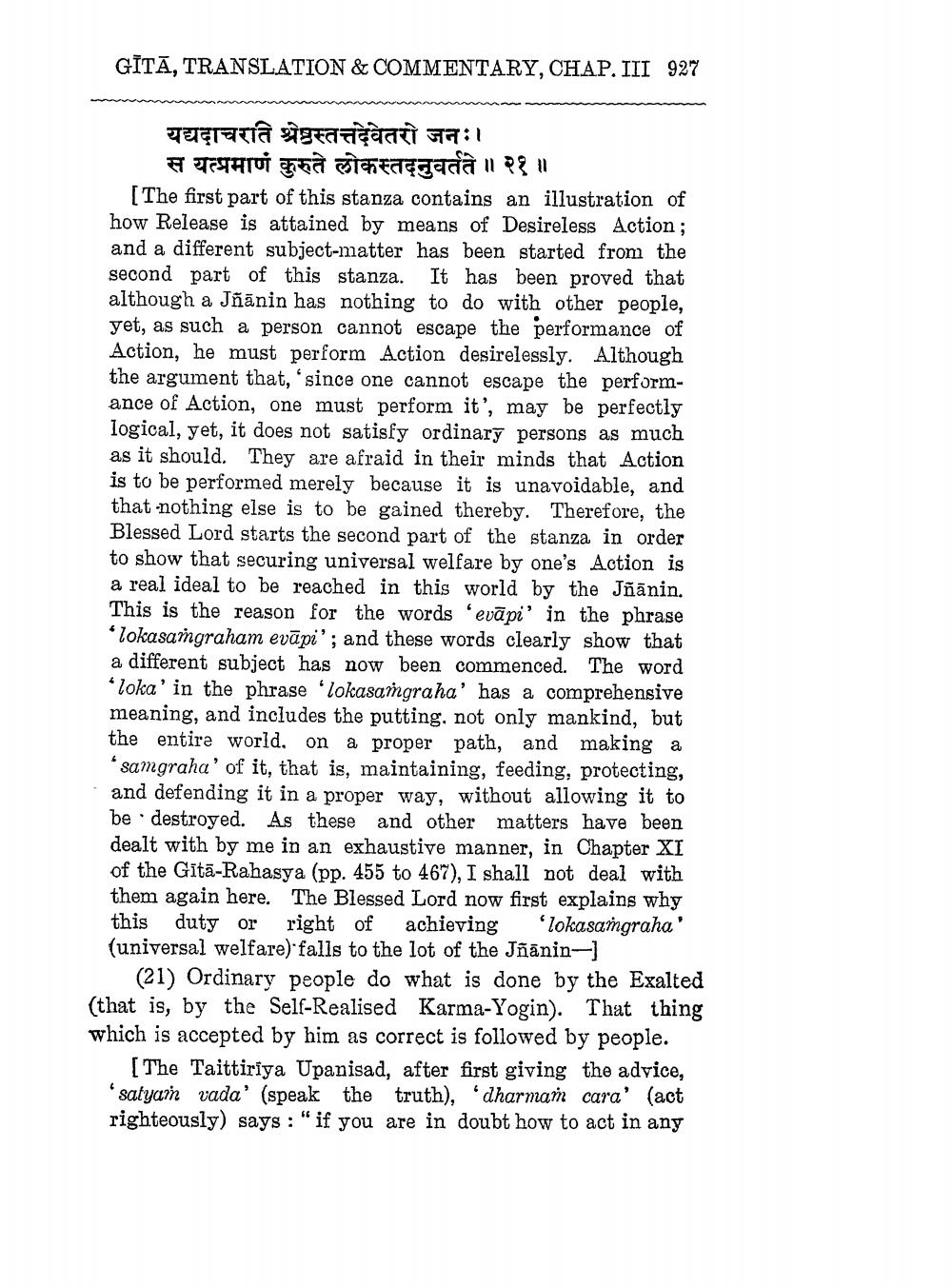________________
GĪTĀ, TRANSLATION & COMMENTARY, CHAP. III 927
यद्यदाचरति श्रेष्ठस्तत्तदेवेतरो जनः ।
स यत्प्रमाणं कुरुते लोकस्तदनुवर्तते ॥ २१ ॥
[The first part of this stanza contains an illustration of how Release is attained by means of Desireless Action; and a different subject-matter has been started from the second part of this stanza. It has been proved that although a Jñänin has nothing to do with other people, yet, as such a person cannot escape the performance of Action, he must perform Action desirelessly. Although the argument that, since one cannot escape the performance of Action, one must perform it', may be perfectly logical, yet, it does not satisfy ordinary persons as much as it should. They are afraid in their minds that Action is to be performed merely because it is unavoidable, and that nothing else is to be gained thereby. Therefore, the Blessed Lord starts the second part of the stanza in order to show that securing universal welfare by one's Action is a real ideal to be reached in this world by the Jñänin. This is the reason for the words 'evapi' in the phrase "lokasamgraham evapi'; and these words clearly show that a different subject has now been commenced. The word 'loka' in the phrase 'lokasamgraha' has a comprehensive meaning, and includes the putting, not only mankind, but the entire world. on a proper path, and making a "samgraha' of it, that is, maintaining, feeding, protecting, and defending it in a proper way, without allowing it to be destroyed. As these and other matters have been dealt with by me in an exhaustive manner, in Chapter XI of the Gita-Rahasya (pp. 455 to 467), I shall not deal with them again here. The Blessed Lord now first explains why this duty or right of achieving 'lokasamgraha' (universal welfare) falls to the lot of the Jñanin-]
(21) Ordinary people do what is done by the Exalted (that is, by the Self-Realised Karma-Yogin). That thing which is accepted by him as correct is followed by people.
[The Taittiriya Upanisad, after first giving the advice, 'satyam vada' (speak the truth), 'dharmam cara' (act righteously) says: "if you are in doubt how to act in any




